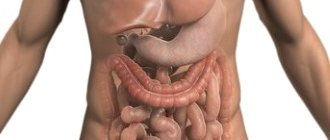General information
Short, that is, one-day fasting, was practiced in ancient times.
For example, this was done by Socrates, who believed that food must be seasoned with hunger. Such “treatment” was also practiced by ancient doctors, who were convinced from experience that hunger can be treated. In fact, there is a lot of common sense in this thesis, since modern people are prone to overeating. Short daily fasting is very beneficial for the body. It makes it possible to cleanse it, stimulate the function of the immune system, keep the body in good shape and even cure some diseases. And even if a person fasts one day a week, then with the right approach to this process, such a system will make it possible to obtain a tangible effect. how to properly fast for 1 day, how to recover from fasting , and how to tolerate a 24-hour abstinence from food correctly.
Fasting 36 hours
Here you will have to remain without food for more than a day, which can already negatively affect your health. Therefore, it is recommended to arrange such abstinence no more than once a month. Fans of various spiritual practices (including yoga) insist on more frequent repetitions, which does not find a positive response in medicine.
It is best to distribute the time allotted for a one and a half day fast:
- do not have dinner on the first day;
- do not eat edibles for the entire second day;
- start eating from breakfast on the third day.
Healthy sleep is very important to maintain strength. Without food, it’s hard for the body; you can’t deprive it of rest. During the day, to facilitate the psychological transfer of this time, it is advisable to occupy yourself with something exciting that will not allow you to constantly think about food.
One-day fasting: benefits and harms
The fact that with the help of such one-day fasts you can gradually lose weight is confirmed by scientists. Thus, experts from the United States confirmed in a study that even when abstaining from food for one day a month, positive changes occur in the body.
Researchers reported that with regular fasting for one day a month, the risk of vascular and heart disease is reduced by 40%. One-day fasting also has a positive effect on the health of people suffering from asthma : they have fewer attacks. Moreover, short-term stress for the body “stimulates” the immune system , which reduces the risk of developing cancer processes.
However, before starting this practice, you need to clearly know what the benefits and harms of daily fasting are.
Benefit
If you practice abstaining from food for one day for a long time, you can achieve many positive changes in the state of the body:
- lose weight and correct figure flaws;
- get rid of some unpleasant diseases, since during periods of hunger the pancreas “rests”;
- overcome colds faster;
- improve the functions of internal organs;
- rejuvenate the body by improving the condition of the skin and hair;
- activate metabolic processes in the body;
- stimulate the function of the immune system;
- improve the condition microflora ;
- reduce the likelihood of developing severe heart and vascular diseases, etc.;
- get rid of food addiction and the indomitable desire to constantly chew something;
- train endurance and willpower.
Such fasting is also useful for those who plan to endure longer periods without food in the future. If done regularly for 2-3 months, it can perfectly prepare the body for 2-3 days of fasting and even longer periods of time without food in the future.
Harm
During the period of abstinence from food, some unpleasant sensations may appear:
- nausea and dizziness ;
- feeling of weakness, drowsiness and fatigue;
- at first, acne may appear on the face and body;
- state of irritability and stress;
- Some people find it difficult to endure even one day of hunger.
The benefits of therapeutic fasting for the body
Therapeutic fasting does not become a strong stress for the body if you approach the organization of such interval nutrition wisely. It’s not just people who want to lose weight who resort to fasting; weight loss is more of an added bonus. People who practice therapeutic fasting note a decrease in blood pressure, as well as some blood parameters, in particular,
cholesterol
and glucose
.
Psychologists also note the advantages of fasting in its flexibility. A person can switch to therapeutic fasting gradually, changing the length of the intervals. Since fasting does not involve fasting or a strict diet, it is emotionally easier to adhere to the chosen regime.
Preparation
Before you practice fasting 1 day a week, you need to tune in to weekly fasting and properly prepare for this process. Each person should individually decide on which day of the week it will be better and more convenient for him to abstain from food. Many people prefer to do this on a day off, when they can arrange their daily routine and physical activity at their own discretion. But you can choose any convenient time - the main thing is that it is comfortable for the person, and fasting occurs one day a week. But, despite the fact that this process is not as difficult as prolonged fasting, you also need to prepare correctly for abstaining from food once a week.
- A few days before fasting, you should not smoke or drink alcoholic beverages.
- You should also reduce portions 2-3 days before the fasting day. Using plates that hold little food will help with this.
- It is also better to avoid eating meat during this period. Before a fasting day, it is better to include more plant foods and lean fish in your diet.
- The day before fasting should be spent on fruit juices and light plant foods. You can also eat porridge with water.
- Before you practice fasting for the first time, you need to make sure that there are no contraindications to this process. It is advisable to consult a doctor and ask him all your questions. A specialist will be able to determine whether there are any contraindications to fasting.
Fasting 24 hours (daily)
This is a more rigid scheme than interval. The harm of dry fasting is difficult to doubt. If you have liquid in your diet, you can survive a day without harmful consequences.
People who have made it a rule to arrange fasting days for themselves once a week note the following beneficial results:
- acceleration of metabolism;
- improvement of intestinal function;
- correction of hormonal balance;
- losing extra pounds.
One-day fasting is effective for weight loss. Scientists have proven that usually after a long period of not eating, the weight goes away, but then the body tries to make up for what was lost, and the kilograms return. Daily fasting, repeated every week, does not allow this.
This is how eating behavior is corrected. The body gets used to the reduced diet, and the person is no longer tormented by hunger with the same intensity. This helps reduce the amount of calories you consume.
Who Shouldn't Fast
Even a short period without any food can be harmful in some cases. There are the following contraindications to one-day fasting:
- severe weight deficiency;
- malignant tumors;
- other serious diseases - active tuberculosis diabetes mellitus ;
- severe renal or liver failure;
- thrombophlebitis;
- thyrotoxicosis , etc.
In addition to absolute contraindications, there are also many relative ones, in which during periods of hunger, undesirable symptoms may occur - fainting , pressure surges, disturbances of consciousness, etc. That is why you need to start fasting in consultation with a specialist.
Contraindications
If a person already has signs of exhaustion, he should not starve, because this can kill him. A body mass index below normal, on the contrary, indicates that nutrition should be strengthened.
Absolute contraindications have been established for children and adolescents, the elderly, endocrine patients, and patients with liver cirrhosis. It is recommended to refrain from fasting if:
- infectious diseases;
- inflammatory processes;
- parasitic infestations;
- heart rhythm disturbances;
- blood clotting disorders;
- presence of implanted tissues.
Women should not fast during pregnancy and breastfeeding. Men should not take risks with gynecomastia (enlarged mammary glands) in order to avoid the development of oncological processes.
Although proponents of alternative medicine claim that fasting (especially dry fasting) cures cancer, this is a big misconception. On the contrary, such a shock is contraindicated for the weakened body of a cancer patient.
How to do it?
To get the maximum benefit from abstaining from food, you need not only to properly prepare for this process, but also to take into account all the important rules for its implementation.
- You need to start fasting for one day in the evening after a day on light food. You should skip dinner and perform a cleansing enema in the evening.
- It is recommended to spend such days at home. In this case, it will be much easier to resist temptations. In addition, on this day, especially at first, unpleasant manifestations may occur. You may feel dizzy, overcome by weakness and fatigue.
- During the day you should drink clean water - about two liters. Some sources recommend placing a few soda crystals on your tongue before drinking water. This will help cleanse the body of toxins , since the liquid will not be eliminated immediately.
- It is recommended to go for a walk on this day, and to get rid of sudden attacks of hunger, you can do not too intense physical exercise.
- If you experience a severe headache or loss of consciousness on a fasting day, you should drink a glass of water with lemon juice or a teaspoon of honey. But such relaxation is allowed only once a day. You can also drink a glass of unsweetened tea or rosehip infusion.
Benefits of intermittent fasting
This is the most gentle mode of abstinence from food. It is practiced by those who want to lose weight, but cannot withstand the grueling rules. The most popular scheme is 16 hours of fasting and 8 hours during which you are allowed to eat.
It really has advantages:
- metabolism is not disturbed;
- insulin production is normalized;
- 16 hours is enough for the body to digest food and switch to fat reserves;
- within 8 hours one of the traditional meals is lost.
You can get the most benefits from intermittent fasting when combined with intense exercise. The main thing is to prevent overeating during the allotted 8 hours, otherwise 16-hour abstinence will not make sense. And short-term unloading will not harm metabolic processes.
Dry fasting
A more severe method is dry fasting , that is, abstaining not only from food, but also from any liquid.
If you practice daily dry fasting, then in the end it will turn out to be longer, since you need to stop consuming liquid in the evening, and start in the morning of the day following the day of fasting. That is, the person will end up abstaining from water for about 36 hours. And this can provoke unpleasant sensations.
Dry fasting is a more serious challenge, so unprepared people are better off starting with a regular water fast.
Benefits of water fasting
When a person is obsessed with the idea of getting rid of excess weight, he is ready to give up food and only drink water. As you know, without it the body lives longer than without food. It is believed that drinking liquid helps deceive the stomach and suppress hunger.
Although this is a less harmful activity than dry fasting, it will not be possible to avoid exhaustion if it lasts too long. There is no glucose in water, which means there is no source of life for cells.
Sweetened water is not the answer. Losing weight on sugar is a dubious prospect. And this substance is more harmful than meat, fish, vegetables and other healthy foods. The decision to sit on the water for a day can be useful from the point of view of alternative medicine, but there is no evidence of this in traditional medicine.
Exit
If you exit such a system incorrectly, then even a one-day period without food can significantly harm the body. It is very important to come out of hunger gradually so as not to burden the gastrointestinal tract by rushing from one extreme to the other. Therefore, in the morning after a fasting day, you should under no circumstances pounce on food.
It is best to start ending fasting in the evening, a day after it started. In the evening, you should first eat fresh vegetables or fruits. A smoothie or vegetable puree, as well as a vegetable salad, are suitable. For example, you can chop carrots and cabbage and season this salad with olive oil and lemon juice. This salad is the best option, as it allows you to cleanse the digestive tract well. In the evening, you can also cook stewed or baked vegetables and begin to overcome hunger and them. This evening you should not consume animal food - eggs, milk, meat.
Another rule is that you should never overeat. Portions should be small both on the evening of recovery from hunger and throughout the next day. In general, a one-day abstinence from food, among other things, is also aimed at reducing the amount of food consumed. It is very useful to drink herbal teas with the addition of a small amount of honey.
In the following days, you should try to eat a little less than usual. Over time, this will become a persistent habit. If hunger overcomes you, you should train yourself to eat smaller portions, but more often. It is also important to continue to drink enough fluids on “fed” days. It is advisable to consume up to two liters of water daily.
Bragg 24 hour fast
During a complete fast, you can, if you wish, add 1/3 teaspoon of raw honey and 1 teaspoon of lemon juice to distilled water. This makes the water pleasant and dissolves mucus and toxins. At the end of such a fast, the first food should be a salad of fresh vegetables, mainly grated carrots and cabbage. You can use lemon or orange juice as a seasoning. This dish acts like a broom on the intestines.
After this you can eat boiled/steamed vegetables. They do not form acids unless you add sugar and white bread to the dish. You can eat a variety of greens and - spinach, kale, cooked celery. Fibrous beans can be consumed as a source of protein.
You should never break your fast with animal products: meat, cheese, fish, nuts or seeds. Do not eat any acidic foods for 2 days.
Doing a short 24-hour fast every week leads to significant changes, both in your body and in your attitude towards the world. This is the basis that will allow you to master the next stages of fasting practice much easier.
But don’t expect from such fasting days what they cannot give. We are talking about rapid weight loss. Regular fasting will help improve your physical condition and slightly change your figure parameters. However, the most significant changes will occur in consciousness, energy and health. At a minimum, you will develop a healthy relationship with food, you will get rid of food addiction, compulsive overeating, etc.
When should you stop?
Sometimes a person notes that on fasting days and after them, his health worsens significantly. In this case, you should stop practicing this method and switch to another diet or nutrition system. Fasting should be stopped if the following occurs:
- The state of health deteriorates significantly - severe nausea or vomiting, severe dizziness, impaired consciousness, etc.
- If the gastrointestinal tract is disturbed, pain in the stomach, intestines, etc. bothers you.
- If the urine becomes cloudy or dark.
Important Tips
- To make the fasting process easier, you need to do it on the same day of the week all the time. This way the body quickly adapts to such a schedule.
- It is worth warning those closest to you about your intentions so that they support and do not tempt you to break away from the process. At first, you should remove tasty and aromatic foods from your visibility to make your task easier.
- It is worth preparing dishes in advance for the correct exit from such a diet.
- Under no circumstances should you allow yourself even small indulgences. Otherwise, such unloading will lose its meaning, and it will be very difficult to get used to the system later.
- During periods of hunger, you need to find something to do that will give you the opportunity to be distracted and think less about how you want to eat.
- Another important factor for success is the right mood. A person must believe that he is fasting for health, improvement of well-being and appearance. And the knowledge that tomorrow he will be able to eat will be an incentive to withstand a relatively short period of hunger.
- You can start practicing this kind of hunger with someone for company. In this case, psychologically it will be much easier to withstand it, because you can share your experience and your feelings with a like-minded person.
- There is no need to assume that such abstinence from food can pose any danger to the body. If a person is healthy, he may well not eat for 24 hours.
How to do a one-day fast - technique
Many people call one-day fasts fasting days, which, in fact, describes the main effect of this method. Namely, resting the digestive system and restarting it. But, like any procedure, short-term food refusal must be carried out correctly so as not to spoil your health.
The correct one-day fasting (fasting from English - fasting / fasting) begins with the mood. Therefore, during the week, focus your attention on the upcoming fast. Determine the date in advance and plan your affairs so that nothing can interfere with you on this day. It is advisable to choose a day for fasting when you will not be under much strain either physically or emotionally.
- At every meal, think about the upcoming fast.
- During the week before a one-day fast, try to restrain your appetite, which involuntarily increases from such thoughts.
- Every evening, prepare yourself for this small feat. Try to convince all your loved ones of the necessity and usefulness of this step, at least from the standpoint of a healthy lifestyle. Don’t let them tempt you with chocolate for tea, shawarma before bed, or a donut at night.
All this will create an energy component for the upcoming event, a kind of invisible frame of the future building. This will help you achieve your plans much easier by taking advantage of the additional energy provided by other people.
Before fasting, restrain yourself in food
Don't drink alcohol, don't eat a lot at night, give up junk food and drinks. You'll have to go without food for the entire next day, which means a lot of extra free time.
If this is your first time doing a one-day fast, try to find activities that will distract you from thinking about food. It's better if it's done outdoors, but you can spend this day at home.
Don't go on your first fast at work
Excessive attention to your person can only harm your business. In addition, short-term fasting at first may have possible side effects in the form of various unpleasant sensations in the stomach, headaches, dizziness, general weakness, bad mood, and bad breath. All such feelings can ruin your relationships with employees and make it difficult to fast yourself.
In the future, you will be able to fast “on the job.” No one will even notice it if you don't say so. But for the first time, a day off is best.
Next, it is better to arrange a one-day fast on the same day of the week. This way your digestive system will work like a Swiss watch.
Do a one-day water fast
What can you drink during a one-day fast besides pure water? It's better not to get carried away with detox drinks, but just add a little taste to the water. It can be lemon, lime, mint (if there are no contraindications) or honey.
If you have a strong attachment to food or just physically feel weak, you can add a little honey to the water - a teaspoon per glass of water will be more than enough.
Remember that the main thing in one-day fasting is to give the digestive system a rest. This will provide a healing effect on the body. Secondly, fasting will help change eating habits, get rid of addiction to food, and, of course, change consciousness and worldview. Which, however, is a consequence of the main goal.
Practice other types of body cleansing
On the day of a one-day fast, you can do a cleansing enema, but this is not necessary. If you decide to do this, consult your doctor first. In cases where an enema is not an option, perform other types of body cleansing.
For example, during fasting it is very good to practice cleansing breathing, do low-intensity workouts (like yoga, stretching), water and other pleasant wellness treatments. The main thing is not to overexert yourself.
Reviews
Numerous reviews also indicate that fasting for 24 hours helps you become slimmer, more energetic and improve your health. True, often those who practiced such a scheme note that initially it was difficult to get used to it, and there was a desire to break. But with the right attitude, after just a few cycles I was able to endure the day of fasting without any particular difficulties.
After just a few days of fasting, people noted noticeable improvements in the body’s condition and a decrease in volume. After about 3-4 cycles, the weight began to decrease, and the result was maintained due to the fact that the person began to eat more moderately.
But the most noticeable results can be expected if you introduce such fasting days into your schedule and practice them constantly. Gradually, this will be perceived as a way of life and will help significantly improve your health.
Fasting 3 days
Depriving the body of food for one day can still be useful, 36 hours is relatively harmless. But a refusal to eat that lasts more than two days clearly threatens health. During this time, glucose reserves are depleted, and the body moves on to digesting what can still be reached.
There is an opinion that a three-day fast is beneficial for obese people. Supporters of this point of view refer to the fact that fat deposits are a reserve that allows you to hold out for a couple more days.
The danger lies in the fact that muscle tissue will also be split. Some nutritionists believe that it goes away first.
Fat returns quickly after stopping a hunger strike, but the same cannot be said about muscles. Several cycles of not eating and we get sarcopenic obesity (a combination of musculoskeletal degeneration and obesity).









